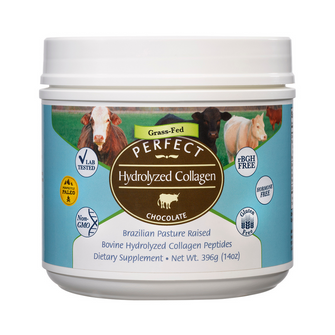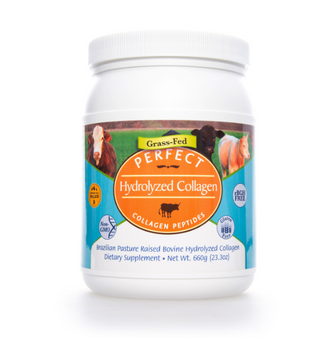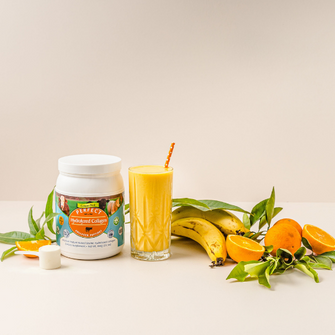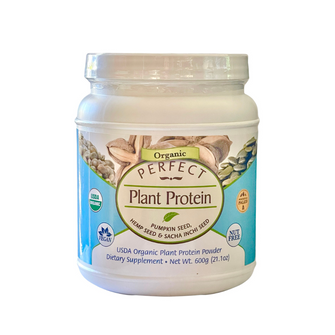Categories
Today, we want to talk about the common misconceptions about protein so you have a better understanding of its benefits and the detrimental effects of consuming too little.
In the blog, we will discuss:
- Does Protein Make You Bulky (no)
- The Main Role of Protein is Muscle Development (no)
- Cutting Back on Protein Helps You to Lose Weight (false)
- Too Much Protein Causes Kidney Disease (unproven)
Does Protein Make You Bulky?
If you are a woman reading this, there is a chance that you have heard (or even believe), that consuming too much protein makes you bulky?
We are here to put your mind at ease today and tell you that eating too much protein does NOT make you bulky! In fact, it can have some pretty astounding (positive) effects on your body and health.
Eating adequate protein will help to build a strong (not bulky) body and give you beautiful lean, toned muscles. Without sufficient protein you cannot achieve your body goals, it is virtually impossible.
Without the right amount of protein your health and energy levels can suffer.
What you can expect form eating enough protein:
- A lean, toned physique (when you weight train)
- Improved recovery after exercise (and injury)
- More energy to power you through your activities
- Weight loss/maintenance (without the annoying hunger)
- Better hormone balance
- Increased strength (especially important as we age)
- Better bone health (also very important as we age)
- Positive metabolic effects
- Better blood pressure
The Main Role of Protein is Muscle Development
Whilst protein is incredibly important for muscle development, protein has many other roles in the body and when you can understand this, you will realise that eating a low protein diet is not wise.
Protein Roles:
- Growth and maintenance of body tissues
- Aids in many biochemical reactions
- Acts as a messenger for your cells (some proteins are hormones)
- Provides structure
- Helps to maintain pH balance
- Regulates bodily processes to maintain fluid balance
- Helps the immune system
- Plays a role in storing/transporting nutrients
- Helps provide energy
Cutting Back on Protein Helps You to Lose Weight
The opposite is actually true. Protein is one of the most satiating macronutrients (besides fat). That means that it helps to keep you nice and full (curbs unnecessary hunger).
If you aren't consuming enough protein through your diet, you will likely feel more hungry and your energy levels may suffer.
You can also avoid overeating if you consume enough protein (overeating is a cause of metabolic inflexibility and insulin resistance - as well as eating the wrong foods).
Protein-rich diets are beneficial whether you're on a weight loss journey or not.
Too Much Protein Causes Kidney Disease
This is a controversial topic and many articles online will have you sat feeling confused. But the truth is, consuming high amounts of protein causing kidney disease is unproven, it is just a hypothesis (it is theoretical).
In fact, restricting protein can actually hurt you much more.
Research done in 2018 (and published in the Journal of Nutrition), has questioned the perceived dangers of consuming a protein-rich diet.
The hypothesis that a protein-rich diet can harm the kidneys has never been proven (there is no hard evidence) and what is telling in the research, is that a protein-rich diet actually increases the function of the kidneys.
The contentious issue is that high protein intake has a negative effect on GFR (glomerular filtration rate). GFR represents the flow of plasma from the glomerulus into Bowman’s space over a period of time and is the primary measure of kidney function.
In one Science Direct article it gives much more detail on this topic (this info goes beyond the scope of today's blog but if you wish to delve into this, please see the link in our references below.
They discuss the following points:
- High protein intake increases kidney function (GFR)
- Low protein intake leads to injury and inflammation in kidney tubular
- Lower protein consumption decreases kidney mass and capacity of glomerular filtration
We hope you enjoyed today's article and it helped you to understand how important a protein-rich diet truly is.
You Might Like to Read Our Related Blogs Below:
References:
https://brighterworld.mcmaster.ca/articles/myth-busted-researchers-show-that-a-high-protein-diet-does-not-affect-kidney-function/
https://www.sciencedirect.com/science/article/pii/S2589004221012773
https://www.ncbi.nlm.nih.gov/books/NBK500032/
https://www.healthline.com/nutrition/functions-of-protein
https://www.healthline.com/nutrition/10-reasons-to-eat-more-protein
Disclaimer: the information in this article is intended purely as information and not health advice. It is not intended to treat, diagnose, prevent or cure and one should always seek expert advice from their trusted health practitioner.








